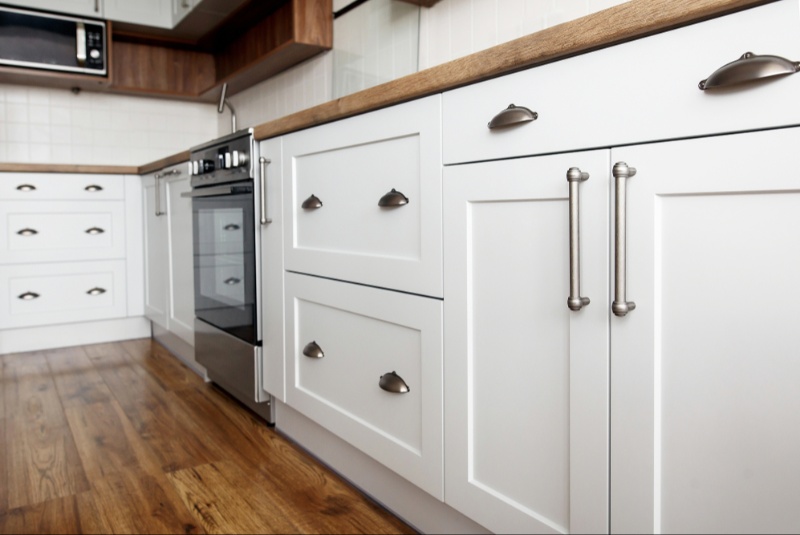Home insurance, an essential purchase for any property owner, ensures that your most significant investment is protected against unforeseen disasters such as fires, storms, and theft. However, insurance premiums can be quite costly, especially if you don't know how to find the best rates and coverage. In this article, we will reveal the secrets to saving money on home insurance, allowing you to safeguard your property while keeping your budget intact.
- Shop Around and Compare Quotes
The first and most crucial step in finding the best home insurance rates is to shop around and compare quotes from different insurance providers. Each company has its pricing formula, so premiums can vary significantly from one insurer to another. Make use of online comparison tools, or contact several insurance agents to gather quotes. Be sure to compare not only the prices but also the coverage, deductibles, and any additional features.
- Bundle Your Policies
Bundling your home insurance with other policies, such as auto or life insurance, can lead to significant savings. Many insurance providers offer discounts for customers who purchase multiple policies from them, which can save you up to 20% on your premiums. Talk to your current insurance provider about their bundling options, or consider switching to a provider that offers better discounts.
- Raise Your Deductible
The deductible is the amount of money you are responsible for paying out-of-pocket before your insurance coverage kicks in. By raising your deductible, you can significantly lower your insurance premiums. However, be cautious when choosing a higher deductible, as it also means you'll have to pay more in case of a claim. Determine your risk tolerance and financial capability before making this decision.
- Improve Home Security and Safety
Installing safety and security features in your home can lower your insurance premiums, as these measures reduce the risk of property damage and theft. Consider investing in smoke detectors, fire extinguishers, burglar alarms, and deadbolts on doors. In some cases, insurers may offer discounts of up to 15% for such upgrades.
- Maintain a Good Credit Score
Many insurance companies consider your credit score when calculating your premium. A good credit score signifies financial responsibility and stability, making you a lower risk to insure. Regularly check your credit report, pay bills on time, and reduce debt to maintain or improve your credit score.
- Review Your Coverage Annually
It's essential to review your home insurance coverage annually to ensure it still meets your needs. Over time, your home's value may increase, or you may make significant improvements that require additional coverage. Conversely, some belongings may depreciate or be sold, meaning you no longer need as much coverage. By adjusting your coverage to suit your current situation, you can save money by not paying for unnecessary protection.
- Look for Discounts and Incentives
Many insurance companies offer discounts and incentives to attract and retain customers. Common discounts include those for first-time homebuyers, senior citizens, military personnel, and customers who have been claim-free for a certain period. Ask your insurance agent about any discounts you may qualify for and take advantage of them to lower your premiums.
- Consider a Higher Liability Limit
Increasing your liability limit might seem counterintuitive when trying to save money on home insurance. However, a higher limit can protect you against expensive lawsuits and potential financial ruin in case someone gets injured on your property or you cause damage to someone else's. Discuss with your insurance agent whether a higher liability limit makes sense for your situation.
- Opt for an Independent Insurance Agent
Independent insurance agents work with multiple insurance providers, which allows them to find the best rates and coverage for their clients. By working with an independent agent, you can gain access to a wider range of options and potentially secure a better deal. Be sure to choose an agent with a solid reputation and experience in the home insurance market.
- Take Advantage of Loyalty Programs
Staying with the same insurance provider for an extended period can lead to loyalty discounts. Insurers appreciate and reward long-term customers by offering lower rates, so consider sticking with your provider if they consistently meet your needs and offer competitive pricing. However, don't hesitate to switch if you find a better deal elsewhere – just make sure to weigh the benefits of loyalty against the savings from a new provider.
- Eliminate Unnecessary Coverage
Evaluate your home insurance policy and eliminate any coverage that may no longer be relevant or necessary. For example, if you have a separate policy for a valuable item such as jewelry or art, you may be able to remove it from your home insurance policy to lower your premium. Similarly, reconsider coverage for potential hazards that are unlikely to occur in your area, such as earthquake or flood insurance in low-risk regions.
- Opt for a Newer Home or Update Your Current Home
Newer homes are generally built to higher safety and efficiency standards, which can lead to lower insurance premiums. If you're in the market for a new home, consider choosing a newer construction or a home with updated systems, such as electrical, plumbing, and HVAC. If you already own your home, making necessary updates and improvements can also help you save on insurance costs. Be sure to inform your insurance provider of any upgrades, as they may qualify you for additional discounts.
Saving money on home insurance doesn't have to be complicated. By following the strategies outlined in this article, you can find the best rates and coverage while protecting your most valuable asset. Remember to shop around, take advantage of discounts, and regularly review your policy to ensure you're only paying for the coverage you need. With some research and diligence, you can secure comprehensive protection for your home without breaking the bank.





